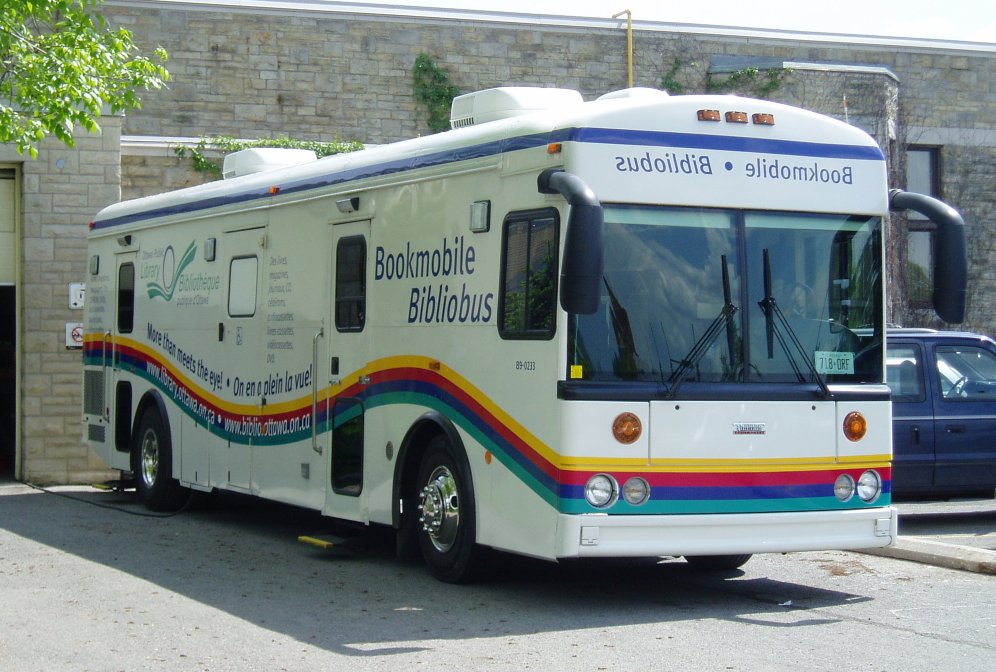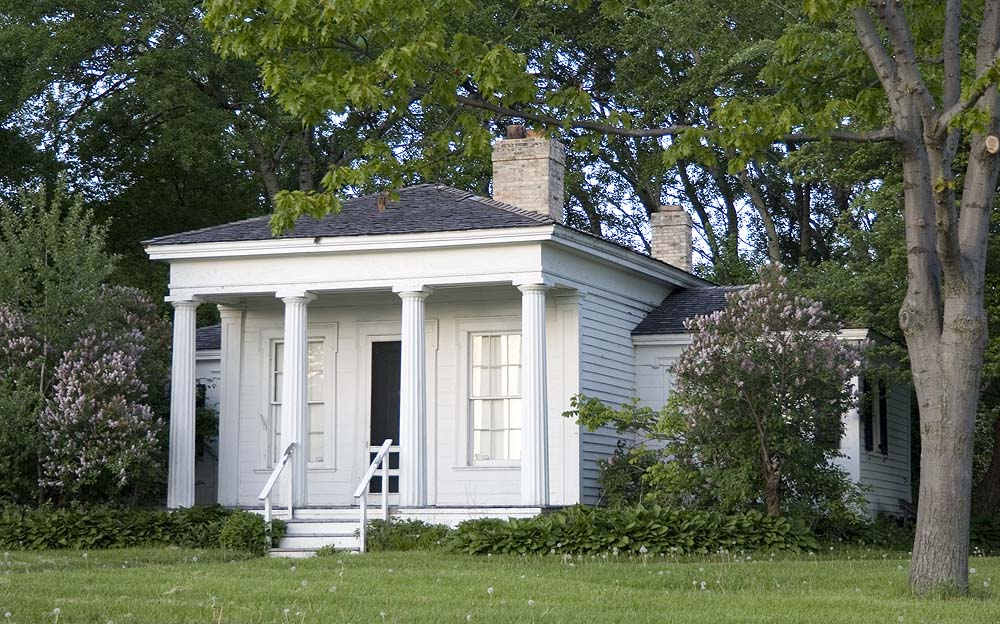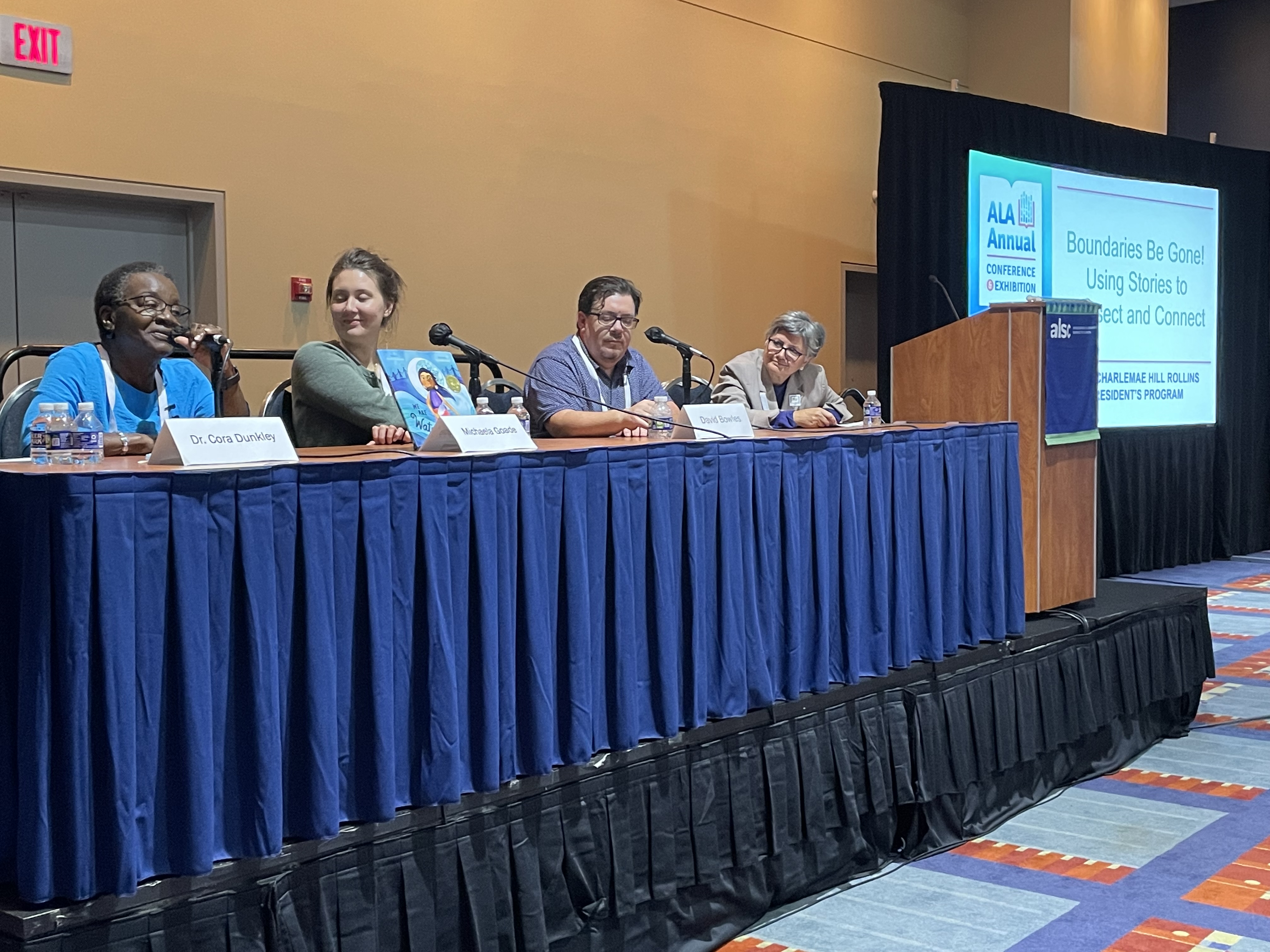|
Lighthouse Library
A lighthouse library was a traveling library issued to a lighthouse or lightship during the late nineteenth and early twentieth centuries. The libraries consisted of up to 50 books housed in a portable bookcase or cabinet which would circulate between stations every three months. Initiated in 1876 by the United States Light House Board, the practice continued into the 1930s when improvement in communication technology rendered them obsolete. History In the late nineteenth century, there were more lighthouses than libraries in the United States. The United States Lighthouse Board, observing how lighthouse keepers "seized on any reading matter that came in their way," purchased twenty-five wooden trunks and filled them with books supplied through private donations. Noting the positive reception of lighthouse keepers, Congress sanctioned the purchase of "books for light-keepers' reading" under the Sundry Civil Appropriation Act. From this experiment emerged a formal lighthouse ... [...More Info...] [...Related Items...] OR: [Wikipedia] [Google] [Baidu] |
Traveling Library
A traveling library is a collection of books lent for stated periods by a central library to a branch library, club, or other organization or, in some instances, to an individual. The chief characteristics from which it derives its name are its temporary location in the place to which the collections of books is sent and the implication that any traveling library will or may be changed for another collection of books. A bookmobile is an example. History The date of the first traveling library is uncertain. Among its forerunners can be noted the itinerant chapman and ballad seller, the religious colporteur, and the camp library of Napoleon I listed in Bourrienne's ''Mémoires''. The traveling library can also be cited as a logical outgrowth of the "circulating schools" of Wales, promoted in 1730 by Griffith Jones, and the later similar extension schools of the General Assembly of the Kirk of Scotland in the Highlands and the Scottish islands. The first really practicable travel ... [...More Info...] [...Related Items...] OR: [Wikipedia] [Google] [Baidu] |
United States Lighthouse Service
The United States Lighthouse Service, also known as the Bureau of Lighthouses, was the agency of the United States Government and the general lighthouse authority for the United States from the time of its creation in 1910 as the successor of the United States Lighthouse Board until 1939 when it was merged into the United States Coast Guard. It was responsible for the upkeep and maintenance of all lighthouses and lightvessels in the United States. History 1789–1910 In 1789, the United States Lighthouse Establishment (USLHE) was created and operated under the Department of the Treasury. All U.S. lighthouse ownership was transferred to the government which became the general lighthouse authority (GLA). In 1792, the Cape Henry Lighthouse was the first lighthouse built by the USLHE. In 1822, French physicist, Augustin Fresnel designed the Fresnel lens. In 1841 the Fresnel lens was first used in the United States and installed on the Navesink Lighthouse. In 1852 the Lighthou ... [...More Info...] [...Related Items...] OR: [Wikipedia] [Google] [Baidu] |
Libraries By Type
A library is a collection of Book, books, and possibly other Document, materials and Media (communication), media, that is accessible for use by its members and members of allied institutions. Libraries provide physical (hard copies) or electronic media, digital (soft copies) materials, and may be a physical location, a virtual space, or both. A library's collection normally includes printed materials which may be borrowed, and usually also includes a reference section of publications which may only be utilized inside the premises. Resources such as commercial releases of films, television programmes, other video recordings, radio, music and audio recordings may be available in many formats. These include DVDs, Blu-rays, CDs, Cassette tape, cassettes, or other applicable formats such as microform. They may also provide access to information, music or other content held on bibliographic databases. In addition, some libraries offer Library makerspace, creation stations for wiktionar ... [...More Info...] [...Related Items...] OR: [Wikipedia] [Google] [Baidu] |
Types Of Library
Type may refer to: Science and technology Computing * Typing, producing text via a keyboard, typewriter, etc. * Data type, collection of values used for computations. * File type * TYPE (DOS command), a command to display contents of a file. * Type (Unix), a command in POSIX shells that gives information about commands. * Type safety, the extent to which a programming language discourages or prevents type errors. * Type system, defines a programming language's response to data types. Mathematics * Type (model theory) * Type theory, basis for the study of type systems * Arity or type, the number of operands a function takes * Type, any proposition or set in the intuitionistic type theory * Type, of an entire function ** Exponential type Biology * Type (biology), which fixes a scientific name to a taxon * Dog type, categorization by use or function of domestic dogs Lettering * Type is a design concept for lettering used in typography which helped bring about modern ... [...More Info...] [...Related Items...] OR: [Wikipedia] [Google] [Baidu] |
Mobile Libraries
A bookmobile, or mobile library, is a vehicle designed for use as a library. They have been known by many names throughout history, including traveling library, library wagon, book wagon, book truck, library-on-wheels, and book auto service. Bookmobiles expand the reach of traditional libraries by transporting books to potential readers, providing library services to people in otherwise underserved locations (such as remote areas) and/or circumstances (such as residents of retirement homes). Bookmobile services and materials (such as Internet access, large print books, and audiobooks), may be customized for the locations and populations served. Bookmobiles have been based on various means of conveyance, including bicycles, carts, motor vehicles, trains, watercraft, and wagons, as well as camels, donkeys, elephants, horses, and mules. History 19th century In the United States of America, The American School Library (1839) was a traveling frontier library published by Harper & ... [...More Info...] [...Related Items...] OR: [Wikipedia] [Google] [Baidu] |
Milwaukee County Historical Society
The Milwaukee County Historical Society, also known as MCHS, is a local historical society in Milwaukee County, Wisconsin. Founded in 1935, the organization was formed to preserve, collect, recognize, and make available materials related to Milwaukee County history. It is located in downtown Milwaukee, Wisconsin, Milwaukee in the former Second Ward Savings Bank building. MCHS houses the Harry H. Anderson Research Library and a museum. The library collects and preserves manuscripts, records, photographs, and family history information. The museum preserves three-dimensional artifacts related to Milwaukee County history, including paintings, ribbons, uniforms, flags, furniture, and china in a collection of over 20,000 items. Locations In addition to the main museum and research library, the MCHS owns three historic house museums and one historic site: the Lowell Damon House in Wauwatosa, Wisconsin, Wauwatosa; the Benjamin Church House (Shorewood, Wisconsin), Kilbourntown House in Est ... [...More Info...] [...Related Items...] OR: [Wikipedia] [Google] [Baidu] |
Library Circulation
Library circulation or library lending comprises the activities around the lending of library books and other material to users of a lending library. A circulation or lending department is one of the key departments of a library. The main public service point is the circulation desk or loans desk, usually found near the main entrance of a library. It provides lending services and facilities for return of loaned items. Renewal of materials and payment of fines are also handled at the circulation desk. Circulation staff may provide basic search and reference services, though more in-depth questions are usually referred to reference librarians at the library reference desk, but the services of both are occasionally combined. The circulation desk is in most cases staffed by library support staff instead of professional librarians. Functions of circulation desk staff *Lending materials to library users *Checking in materials returned *Monitoring materials for damage and routing them ... [...More Info...] [...Related Items...] OR: [Wikipedia] [Google] [Baidu] |
Dictionary
A dictionary is a listing of lexemes from the lexicon of one or more specific languages, often arranged Alphabetical order, alphabetically (or by Semitic root, consonantal root for Semitic languages or radical-and-stroke sorting, radical and stroke for Logogram, logographic languages), which may include information on definitions, usage, etymologies, pronunciations, Bilingual dictionary, translation, etc.Webster's New World College Dictionary, Fourth Edition, 2002 It is a Lexicography, lexicographical reference that shows inter-relationships among the data. A broad distinction is made between general and specialized dictionaries. Specialized dictionaries include words in specialist fields, rather than a comprehensive range of words in the language. Lexical items that describe concepts in specific fields are usually called terms instead of words, although there is no consensus whether lexicology and terminology are two different fields of study. In theory, general dictionarie ... [...More Info...] [...Related Items...] OR: [Wikipedia] [Google] [Baidu] |
Forrest Spaulding
Forrest Brisbin Spaulding (May 4, 1892 – December 9, 1965) was an American librarian. He was named in the ''American Libraries'' article, "100 of the most important leaders we had in the 20th century" for his contribution to intellectual freedom in writing the Library Bill of Rights. He was a humanitarian who is remembered not only for his contributions to librarianship, but also for the positive influence he had on the communities in which he lived and worked. In a commentary on the play ''The Not So Quiet Librarian'', by Cynthia Mercati, Humanities Iowa writes that "Spaulding's words and his life touched everyone who loved not just books but freedom of expression." While Forrest Spaulding is remembered for his contributions to librarianship, he began his career as a reporter. The State Library of Iowa biography mentions that while he spent some time as director of Peru's libraries and museums in 1920, "he was also a correspondent for the Associated Press. He is noted as saying ... [...More Info...] [...Related Items...] OR: [Wikipedia] [Google] [Baidu] |
Lighthouse
A lighthouse is a tower, building, or other type of physical structure designed to emit light from a system of lamps and lens (optics), lenses and to serve as a beacon for navigational aid for maritime pilots at sea or on inland waterways. Lighthouses mark dangerous coastlines, hazardous shoals, reefs, rocks, and safe entries to harbors; they also assist in aerial navigation. Once widely used, the number of operational lighthouses has declined due to the expense of maintenance and the advent of much cheaper, more sophisticated, and more effective electronic navigational systems. History Ancient lighthouses Before the development of clearly defined ports, mariners were guided by fires built on hilltops. Since elevating the fire would improve visibility, placing the fire on a platform became a practice that led to the development of the lighthouse. In antiquity, the lighthouse functioned more as an entrance marker to ports than as a warning signal for reefs and promontory, prom ... [...More Info...] [...Related Items...] OR: [Wikipedia] [Google] [Baidu] |
World War I
World War I or the First World War (28 July 1914 – 11 November 1918), also known as the Great War, was a World war, global conflict between two coalitions: the Allies of World War I, Allies (or Entente) and the Central Powers. Fighting took place mainly in European theatre of World War I, Europe and the Middle Eastern theatre of World War I, Middle East, as well as in parts of African theatre of World War I, Africa and the Asian and Pacific theatre of World War I, Asia-Pacific, and in Europe was characterised by trench warfare; the widespread use of Artillery of World War I, artillery, machine guns, and Chemical weapons in World War I, chemical weapons (gas); and the introductions of Tanks in World War I, tanks and Aviation in World War I, aircraft. World War I was one of the List of wars by death toll, deadliest conflicts in history, resulting in an estimated World War I casualties, 10 million military dead and more than 20 million wounded, plus some 10 million civilian de ... [...More Info...] [...Related Items...] OR: [Wikipedia] [Google] [Baidu] |
American Library Association
The American Library Association (ALA) is a nonprofit organization based in the United States that promotes libraries and library education internationally. It is the oldest and largest library association in the world. History 19th century During the Centennial Exposition in Philadelphia in 1876, 103 librarians, 90 men, and 13 women, responded to a call for a "Convention of Librarians" to be held October 4–6, 1876, at the Historical Society of Pennsylvania. At the end of the meeting, according to Edward G. Holley in his essay "ALA at 100", "the register was passed around for all to sign who wished to become charter members", making October 6, 1876, the date of the ALA's founding. Among the 103 librarians in attendance were Justin Winsor (Boston Public Library and Harvard University), William Frederick Poole ( Chicago Public Library and Newberry College), Charles Ammi Cutter ( Boston Athenæum), Melvil Dewey, Charles Evans ( Indianapolis Public Library) and Richa ... [...More Info...] [...Related Items...] OR: [Wikipedia] [Google] [Baidu] |






